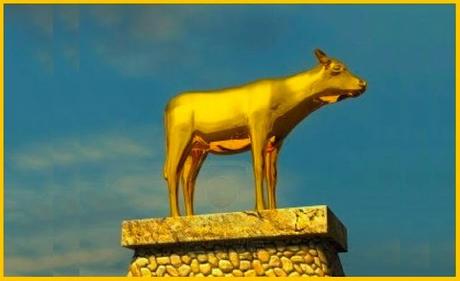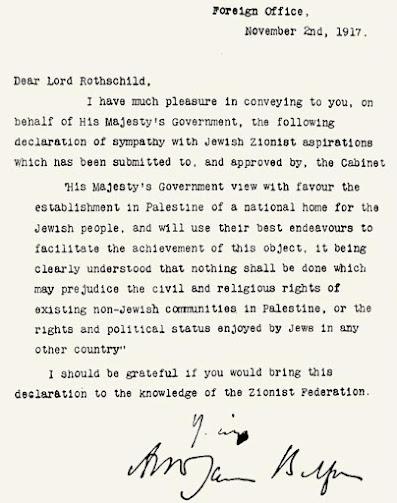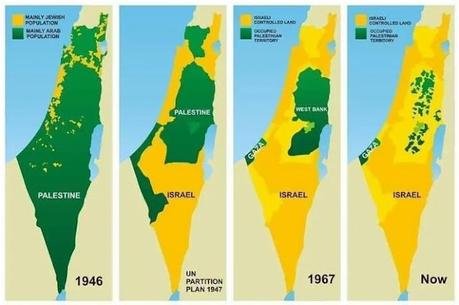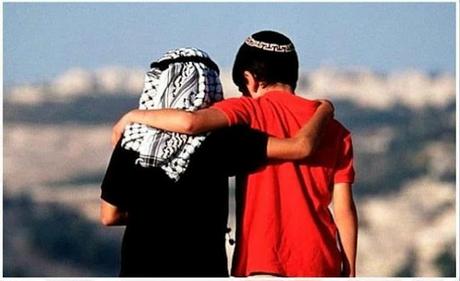Given the appalling bloodshed and death toll in the latest exchanges this past fortnight, I think a good case could be made for peace being the most elusive glittering prize of all and I feel compelled by conscience to focus this week's blog on what's been happening in the region where one of the oldest conflicts in human history is still causing misery for millions.
Trying to make sense of the rights and wrongs, partly by researching way back into the roots of such an entrenched enmity but also by reading as many contemporary analyses as I can across a broad spectrum of affiliations, proves no easy task. It takes time to unwind the complicated tangle of race and religion and statehood, regional rivalries and global politics. What I found was illuminating, though hardly cheering. I hope you don't mind me sharing some of that with you here.
As far as race is concerned (and there is frequent talk of the 'Arab' race and the 'Jewish' race), the scientific evidence - sometimes dubbed the "Abraham's Children" theory - tends to suggest that they all shared a common Levantine ancestry several thousand years ago. Ancient Levant, at the eastern end of the Mediterranean, was roughly equivalent to modern day Israel, Jordan, Lebanon, Palestine and western Syria. But as we know, shared ethnicity and blood ties sometimes count for little when differences of ambition and ideology come into play (starting as far back as Cain and Abel) and familial tribes will feud fiercely regardless.
What partly set the Jewish people apart from their neighbours in the region was religion, and the strong cultural tradition that was part of being Hebrew, the notion of being "God's chosen people". The frequent displacement of the Jewish people from their homeland (a phenomenon known as the 'diaspora ' from the Greek for dispersion - effectively the dissemination of Jews as migrants into the Gentile world) - has also had a significant role to play both in their own sense of identity and in regional and world history.
But interestingly, the first time they left what is sometimes referred to as the Holy Land was of their own volition, when because of a famine in the land Jacob led the tribes into Egypt where they lived and prospered for about 400 years, growing to a population of about 3 million people. At that point the Pharaoh began to be mistrustful of their numbers and influence and. fearing they might side with Egypt's enemies, he first of all enslaved them and then decided to banish them altogether, Probably somewhere around 1200 BC the Jews left Egypt en masse (the 'exodus ') and returned under the guidance of Moses to the land they had vacated centuries earlier.Cue the long journey from Egypt back to their original homeland (which apparently took them 40 years), when Moses went up the mountain to receive the ten commandments, the Israelites, fearing that he would not return, were persuaded by Aaron to collect all their gold jewelry and trinkets together, melt them down and cast a glittering talisman, a statue of a golden calf, to be the object of their worship. According to the book of Exodus, they declared "This is thy god, O Israel, which brought thee up out of the land of Egypt". It seemed they were a fickle people and happy to regress to the bull-worship of an earlier era.

a golden calf
Upon his descent from the mountain, Moses was not best pleased. He berated the Israelites for their backsliding, ordered the golden calf to be pulverised to powder and scattered it to the winds. From thence onwards they should have only one god, Yahweh, and they should live according to the tenets handed down by god to Moses. It's a myth that's central to Hebrew religion and culture as it established itself back in their ancient homeland between the Mediterranean coast and the river Jordan.The first imposed exile of the Jewish people from that homeland occurred in 733 BC when the Assyrians overran the Kingdom of Israel and expelled its inhabitants. The next came in 597 BC and 586 BC when the Babylonians conquered the Kingdom of Judah, exiled much of the population and took many of its citizens into slavery. Alexander conquered the Levant around 330 BC and the Jews were under Greek rule for over two hundred years with many migrating to various parts of the Alexandrian empire in Egypt, Cyprus and Crete. Foreign domination continued when the Romans superseded the Greeks and Judea became a Roman colony. It was then the turn of the Byzantines and various shades of Arab rule, Mamluk and Ottoman from the time of the crusades until the beginning of the last century, some 700 years during which many hundreds of thousands of Jews found it expedient to find somewhere else in the world to live, spreading across Europe and North America.
In modern times the case for a Jewish homeland in the Middle East had been made as long ago as 1917 when Lord Balfour (British foreign secretary at the time) wrote a letter to Lord Rothschild which became known as the Balfour Declaration. I reproduce it here:
At the time Britain was fighting WWI against Germany and its ally, the Ottoman Empire (which included Palestine in its territory), and the British government began to contemplate a future for a liberated Palestine which might include "a national home for the Jewish people", though the concept was necessarily vague, for it had no precedent in international law. However, it seeded the idea of some kind of Zionist State in what was then Palestine, an idea that was strongly supported by the Americans who, although they were not a member, proposed it should be established under the auspices of the League of Nations (precursor to the UN).
As it happened, with the defeat of the Ottoman Empire at the end of WWI, Britain was mandated by the League of Nations to take control of and responsibility for the territory of Palestine and Transjordan until such time as "the territory was able to stand alone".
However, there were differences of opinion as to how this "homeland" might be constituted, with Zionists on the one hand making a case for a separate and autonomous State and others expressing concern that it would bring about the disenfranchising of Palestinians and the permanent destabilisation of the whole region - and this was a hundred years ago - so the progress of negotiations was slow. Meanwhile, a quarter of a million Jews had immigrated to Palestine by the mid-1930s. A proposal from the Peel Commission in 1937 to divide Palestine into a Jewish Sate and a Palestinian State provoked riots in the territory and was dropped, though British forces were frequently involved over the next decade in resolving skirmishes between increasingly militant Jewish groups and their Arab neighbours.
Then along came Hitler, WWII, the persecution of Jews in Europe and the horror of the Holocaust and when victory over the Axis powers was achieved in 1945 international sympathy with the recent suffering of Jewish people gave the cause of a Zionist homeland new impetus and support. Britain still had nominal control of the region but was reluctant to put its support behind the relatively tiny Jewish population of Palestine (see figure 1 "1946" in the panel below) for an autonomous Zionist state and declared its willingness to terminate its mandate and hand control of the area over to the newly constituted United Nations. A date of May 1948 was set for the termination of the British mandate. The Americans for their part, supporting and funding the cause of Jewish separatists, threw their weight behind the idea that the UN should be the body to decide and enforce the partition of Palestine (see figure 2 "UN Plan 1947" in the panel below). The American position should come as no surprise given the the USA had the largest Jewish population of any country in the world. Even at the start of the 21st century there were as many Jews living in the USA as there were in Israel itself.

gradual erosion of Palestinian territory over 75 years
As the end of the British mandate drew nearer, there was far from universal support for the partition proposal among member states of the UN. The Americans were pressing Britain to agree to allow hundreds of thousands more Jewish refugees to settle in Palestine. The Arab countries formed themselves into the Arab League. They did not buy inro the UN partition plan. In fact they pushed for Palestine to be recognised universally as a nation in its own right, but this was vetoed. With no formal consensus in sight, the leaders of the World Zionist Council took matters into their own hands and declared unilateral independence for the Jewish state in May 1948 on termination of the British mandate, in a territory broadly corresponding to the UN proposal. The country of Israel was born. Hebrew was declared as he national language and the Israeli Defence Force was set up to defend the land. Israel was immediately recognised by both the USA and USSR (the world super-powers of the era).Straight away, illegal immigration of Jews to the area became legal, while at the same time there began an exodus of Palestinians from the borders of the new Jewish state to those parts of the region still known as Palestine. Cue a series of Arab-Israeli wars, because the Arab League was consistent in its refusal to accept the legitimacy of Israel as a nation state. The first commenced immediately in 1948/49, the second followed in 1956 (the 'Suez Crisis'). On each occasion Israel made territorial gains but retreated to its 1948 borders as part of ceasefire diplomacy, but the peace was a tenuous one. After the third war in 1967 (the 'Six Days War') when Israel repulsed invasion and went on the counter-offensive, it never gave back the land in gained in the fighting (see figure 3 "1967"in the panel above). That annexation of parts of Palestine was the first major expansion of its territory. A fourth war (the 'Yom Kippur' war) followed in 1973. Peace between Egypt and Israel was finally established via the Camp David Accord in 1978 and Egypt officially recognised the state of Israel. (and America rewarded Egypt by supplying its armed forces with weapons and pouring in annual of approximately $1.5 billion that continues to this day). Jordan also recognised Israel but other countries in the Arab world did not, including Lebanon, Syria. and most of the Arab League. In fact 28 of the 193 UN member states still refuse to recognize Israel to this day. The fifth and sixth Arab-Israeli wars were with northern neighbor Lebanon, in 1982 after which Israel annexed land in the south of Lebanon, and most recently in 2006 after which it relinquished the occupied Lebanese territory.As for Palestine and its people's aspirations for valid statehood, the Palestine Liberation Organisation was formed at approximately the same time as the Camp David Accord and unilaterally declared its own independent Palestine state, which is currently recognised by 138 UN member states although Palestine has never been formally recognised by the UN itself.. However, during all that time Israelis have been encroaching on Palestinian territory, particularly on the West Bank, and building Israeli settlements there in contravention of international law (see figure 4 "Now" in the panel above) while at the same time practicing a sort of subtle discrimination (dubbed apartheid) against Arabs on the West Bank and in Gaza.
I don't for a minute condone the actions of the Palestinian Hamas group the other week, nor their stated aim of eradicating the state of Israel, but I have every sympathy with ordinary Palestinians who have been systematically discriminated against and displaced from their lands over the last seventy-five years. I have Jewish friends and I have Palestinian friends and I sympathise with them equally. The political decisions made by the major world powers regarding the Middle East since the 19th century have been deeply flawed, but there is something less than fair about Zionist expansionism into Palestine which merely serves to antagonise most of the Arab world.
So is there a way forward to the glittering prize of a permanent peace in the Middle East? And if so, what might it be? Obviously I don't have an answer. A properly constituted and formally recognised contiguous Palestinian state ought to be part of the solution but it would require another redistribution of territories, with more migration of people, and the backing in terms of massive development aid for Palestine from the major world powers, and we appear to be long way from that right now.

"Only one problem with peace - there's no profit in it"
I was introduced to a poetic form called the triolet earlier this week by one of my stanza friends, so I thought I'd give it a go. The triolet is of French origin, somewhere around the 13th century, and is somewhat similar to the rondeau in its use of repeated lines, an eight line stanza with an ABaAabAB rhyming structure (capitals denoting repeated lines). It's subject to refinement but I just wanted to get it out there for week-end reading.False ProfitsIt's firework night on the Gaza stripwarmongers prey, munitions away,light up the sky, let those rockets ripit's firework night on the Gaza stripand munitions firms are all blue chip.Pay no mind to what peacemakers say,it's firework night on the Gaza stripwarmongers prey, munitions away.Thanks for reading, S ;-) Email ThisBlogThis!Share to TwitterShare to Facebook